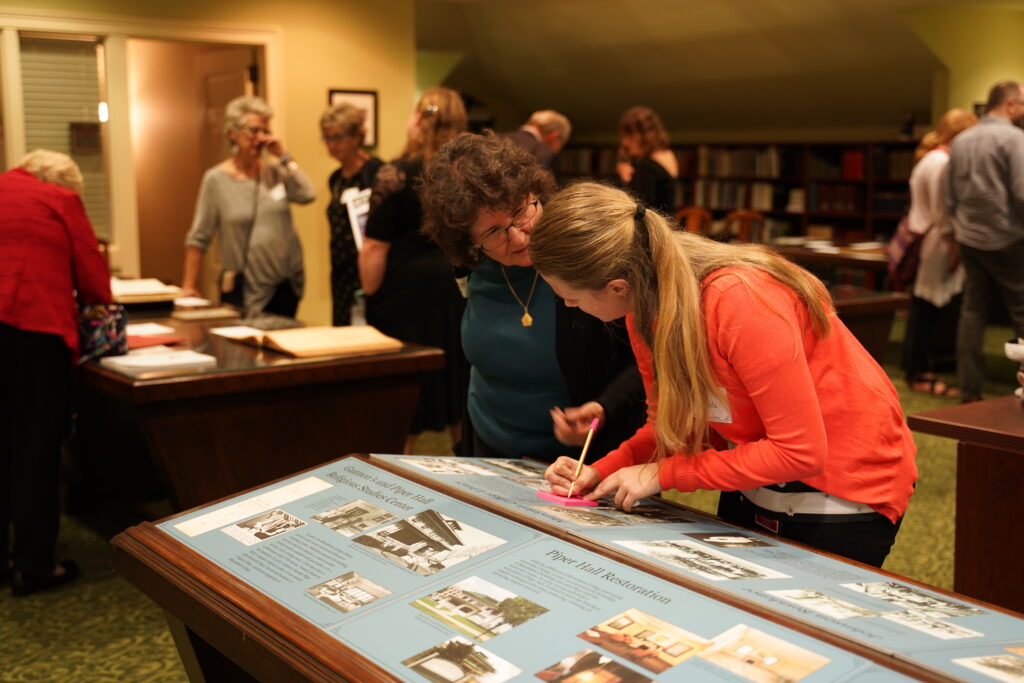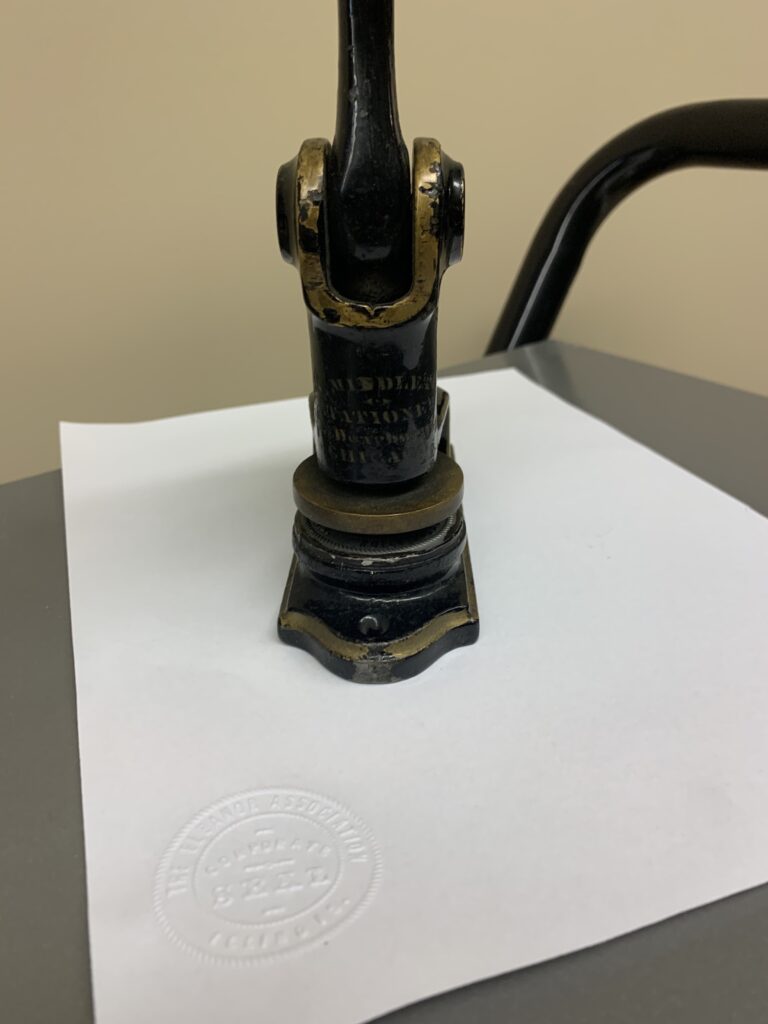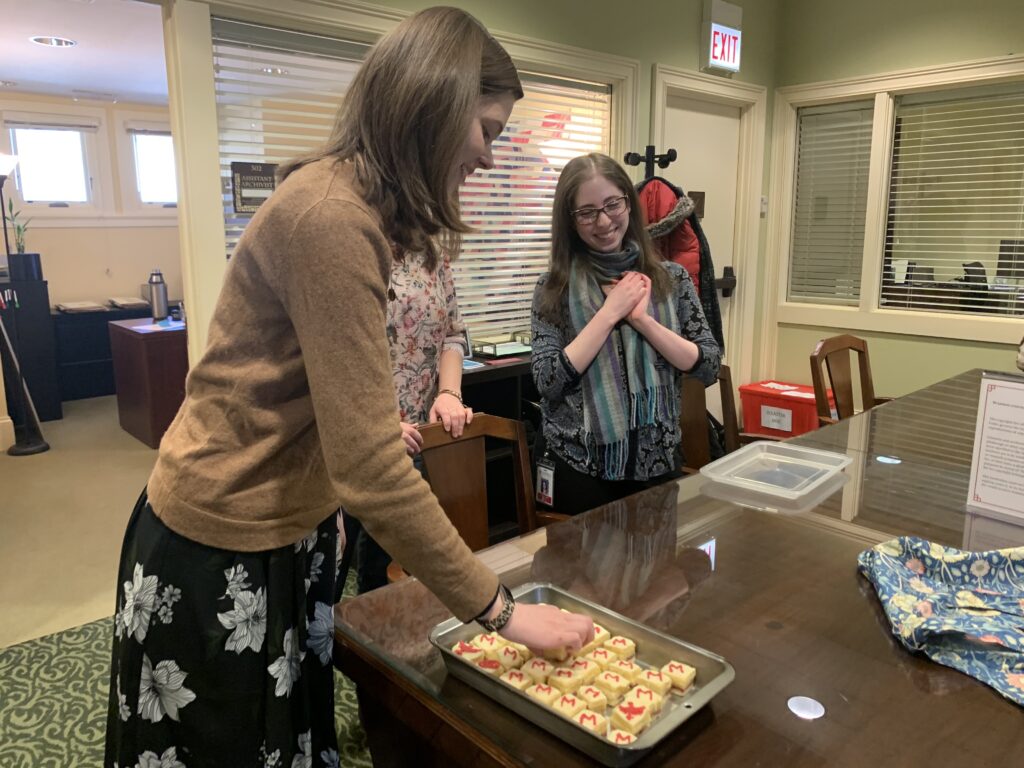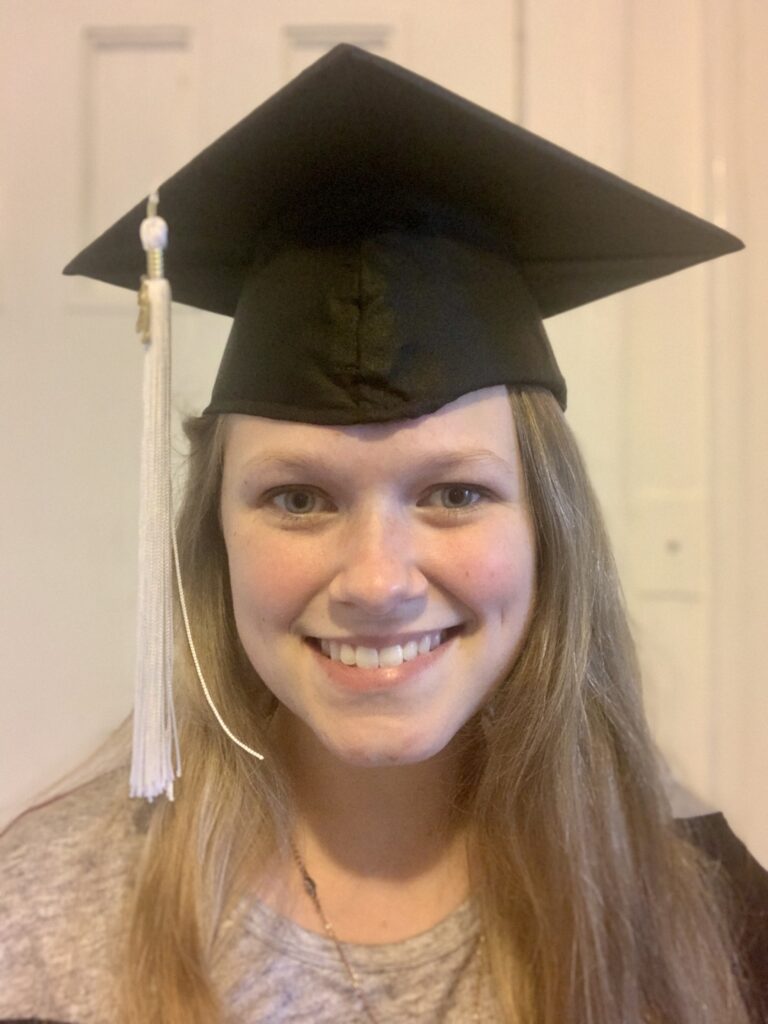I cannot believe two years have come and gone. It feels like last week that I was learning the ins and outs of the Women and Leadership Archives. Of course, it did not turn out the way I expected. Though, there is not much I would change about my experience. Enjoy reading some of my highlights:
Favorite Event
Within the first month working at the WLA, I was assigned multiple projects. September and October of 2019 were event-packed months, and we were still searching for a director. I jumped headfirst, excited to get hands-on experience.
The one that stood out to me the most was the reception for the 25th Anniversary of the WLA. There was a significant amount of preparation, but it was an effective way to learn the WLA, Piper Hall, and collections history. We highlighted items on the tables in the reading room and interacted with guests at the registration table.

Favorite Collection
The WLA holds so many fascinating collections. At this moment, I would say the Eleanor Foundation Records is my favorite because it contains so much information waiting for a researcher to interpret it. The Eleanor Foundation was started as affordable housing for working women in Chicago; it expanded to include recreational and dining locations (learn more here.)

My second favorite is the Mercedes McCambridge Papers – hosting a famous person’s collection in and of itself is remarkable. McCambridge was a Mundelein alumna who became an actress. Folklore surrounds her due to her work with The Exorcist, but she has a more extensive history than that.
Favorite Spot in Piper Hall
Besides the archives in the basement, my favorite spot in Piper Hall must be the first floor’s hidden panel. It has some mystery behind it that I find fascinating: was it built in the original design, what was its intended purpose? No matter the answer, it is such an incredible architectural feature and fun fact for visitors.
Favorite Memory
My favorite memory from the WLA will be all the memories I share with my coworkers. Our meetings where we shared laughs; Scarlett bringing in her tasty treats based on Mundelein recipes; Casey and I working late to assist researchers; learning new things about collections and sharing them; celebrating with Caroline on her new baby.

Conclusion
The WLA has added to me as a person and public history professional. COVID-19 changed our daily occurrences but did not change the importance of our work. I am so thankful for my time as a graduate assistant and looking forward to seeing a long future for the WLA.

Miranda is a graduate assistant at the Women and Leadership Archives. She is a second-year Public History Master’s student, graduating May 2021. Her dream job is to work in a museum, possibly with collections. She enjoys studying dance history as well as 20th-century social changes. In her free time, she tap dances!
Loyola University Chicago’s Women and Leadership Archives Blog is designed to provide a positive environment for the Loyola community to discuss important issues and ideas. Differences of opinion are encouraged. We invite comments in response to posts and ask that you write in a civil and respectful manner. All comments will be screened for tone and content and must include the first and last name of the author and a valid email address. The appearance of comments on the blog does not imply the University’s endorsement or acceptance of views expressed. Questions? Please contact the WLA at wlarchives@LUC.edu.
